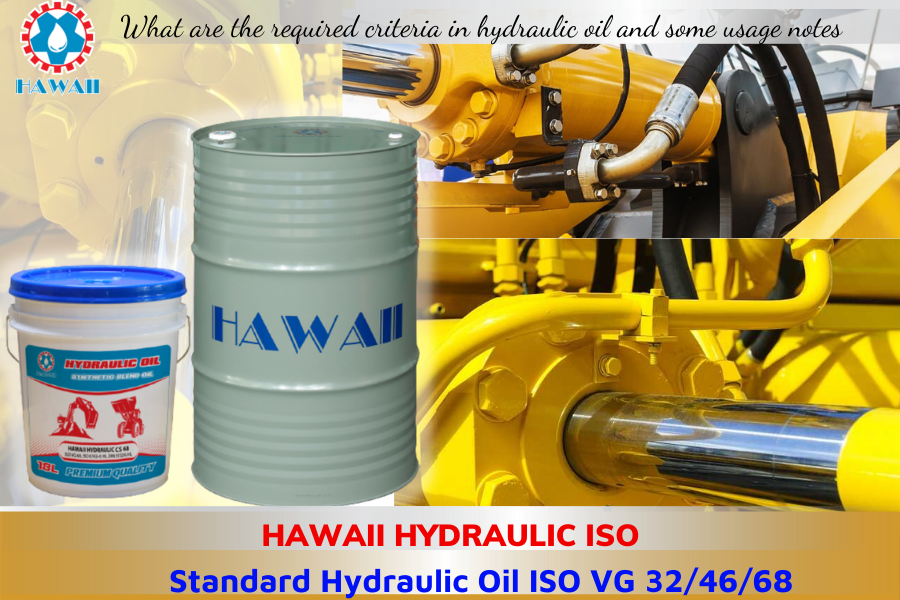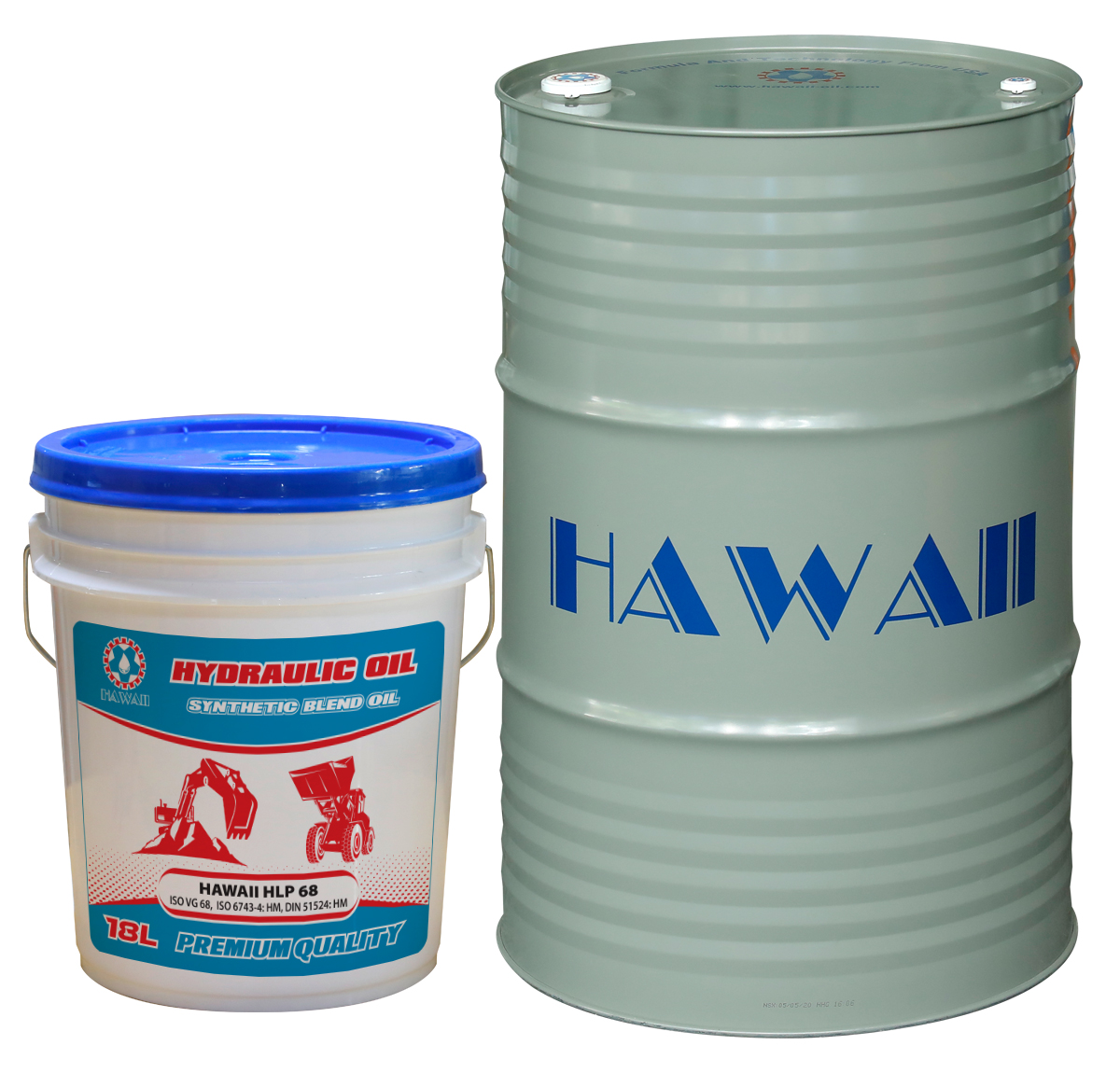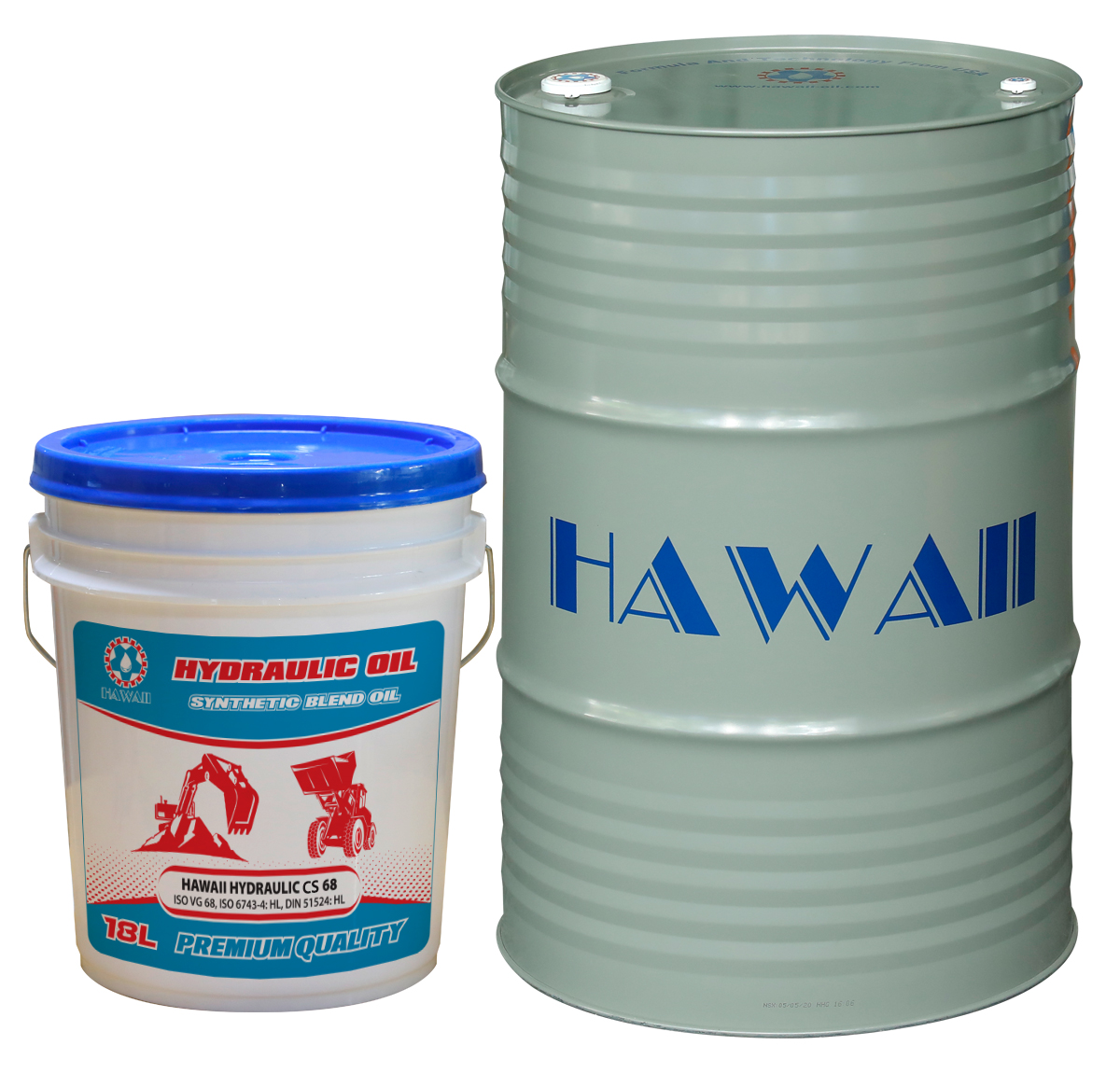
What are the required criteria in hydraulic oil and some usage notes
The hydraulic oil market today is quite diverse with products of different brands. Choosing the right, quality hydraulic oil will help your machinery access optimal lubrication solutions and increase productivity.

In order for customers to be able to choose the right hydraulic oil for their application and save costs for their business, Hawaii Oil would like to provide the criteria and some usage notes to help customers have more knowledge. Learn about how to choose hydraulic oil to best suit your application through the article below, stay tuned!
I. Criteria for choosing hydraulic oil
Good hydraulic oil not only performs the function of power transmission, but also has other functions such as: anti-wear, anti-rust and anti-oxidation, anti-foaming, good dispersion of dirt. That is reflected in the necessary specifications provided on the packaging of high-quality, reputable and high-quality hydraulic oil products with the following points to note:
1. Quality grades of hydraulic oil
One thing that few people notice is that like engine oil and other greases, hydraulic oils also have different quality grades. In ISO 6743-4 hydraulic oils are divided into grades HH, HL, HM, HV. Similar to DIN 51524 (German standard) there are also equivalent quality classes: Part 1- HL, Part 2- HLP, Part 3- HVLP.
- Quality grade HH: this is the lowest quality grade, the oil does not contain additives and the service life is not high. Currently this oil is no longer widely used because it no longer meets the high requirements of modern hydraulic systems.
- HL quality grade: blend of refined mineral base oils and anti-oxidant and anti-corrosion additives to increase oil life.
- HM and HLP: oils containing the same components as HL-grade hydraulic oils but with the addition of AW anti-wear additives to adapt to heavily loaded systems.
- HV and HVLP: same as HM and HLP quality grades, and the oil is enhanced with viscosity index improver additives to give the oil a wider operating temperature range and longer service life. Today, ISO HM and HV quality hydraulic oils are commonly used instead of lower quality grades because of their outstanding advantages in performance and service life, helping customers save costs. , prolonging oil change intervals while providing good protection for hydraulic systems.
2. Types of additives in hydraulic oil
Depending on the job application, we choose hydraulic oil containing the appropriate additives:
- Viscosity Index Additives,
- R&O: anti-rust and anti-oxidation additives,
- AW: anti-wear additive, for systems operating under normal pressure,
- EP: extreme pressure additive, for hydraulic systems operating at high pressure.
aww

HAWAII HYDRAULIC AW – Oil containing specialized high-grade anti-wear additives AW
3. Technical standards achieved and recognized by OEM
(OEM : Original Equipment Manufacturer: Original equipment manufacturer).
In order to best protect the hydraulic system, it is advisable to choose oils that meet the technical and recognized standards of famous manufacturers such as:
Technical standards define the features that hydraulic oils must meet:
- FZG
- ISO 11158
- DIN 51524
- DIN 51589
Specific standards of hydraulic pump/equipment manufacturers:
- Denison HF
- Vickers
- AFNOR NF
- Cincinnati Machine P
- US Steel 127 & 136
4. Air separation and water separation of hydraulic oil
Oil separation feature
The air separation performance of the oil is closely related to the jerkiness of the hydraulic system and the cavitation of the cylinder surface. Hydraulic oil after returning to the oil tank will contain many air bubbles, if the oil does not have the feature of fast air separation, the air bubbles will follow the oil to continue circulating, at this time when the air bubbles are compressed, it will cause a drop. pressure, jerking, and air bubbles when compressed at high pressure will explode, causing damage to the inner surface of the cylinder.
· Water separation feature
A hydraulic oil product with good water separation properties will help prevent important hydraulic system components from being damaged when the system is contaminated with water. If the oil does not separate water well, the water will weaken the performance of the additives contained in the oil. Water will cause hydrolysis to produce acids that corrode metal parts, in addition, water does not have good lubricating properties like oil, so if the oil does not separate well, the lubricating performance will be degraded. increased friction and wear.
II. Notes when choosing and using hydraulic oil
Hydraulic oil is an indispensable energy transfer product for the operation of machinery, helping machines operate stably, prolonging service life and helping machines work more accurately. But did you know that machines only work efficiently when you use hydraulic oil correctly. Here are some notes of T-Lube for you when using hydraulic oil:
1. Selection of high-grade hydraulic oil ensures the cleanliness of hydraulic oil
One of the important criteria when choosing hydraulic oil is the cleanliness of the oil.
Oil is created from the process of mixing base oil and additives, to get a clean hydraulic oil, the base oil and additives must be of good quality. Poor quality oil can cause many problems, damage to machinery affecting the life of the system, the short life of the oil filter increases the cost of buying oil filters.
2. Should choose hydraulic oil with viscosity 32, 46 or 68?
Choosing the right viscosity for the hydraulic system greatly affects the capacity of the system, heat generation, oil leakage …
Depending on the type of machine, operating conditions and production, we can choose hydraulic oil with the most suitable viscosity.
For conventional hydraulic systems, we choose mineral hydraulic oils with viscosity standards ISO VG 32, 46, 68 with viscosity index (VI) 95-105
For hydraulic systems working in harsh conditions, choose an oil with VI>120.
In addition, experts also recommend choosing hydraulic oil according to the weather, the temperature where the equipment works, because the viscosity of the oil will change with the specific temperature, the temperature increases, the viscosity decreases and vice versa because So in hot areas we choose oil with high viscosity, in cold areas we choose oil with low viscosity. So if it is a tropical area, use ISO VG 46, 68 hydraulic oil; temperate regions use ISO VG 32 hydraulic oil.

Lubricants meet ISO VG 32/46/68 standard
3. When should the hydraulic oil be changed?
Determining when to change the oil is very necessary and important, it will help protect the hydraulic system in the best way, avoiding unnecessary problems. To know the appropriate use time of the oil, we should conduct sampling and test the oil sample periodically to know when to change the oil.
T-lube hydraulic oil products have a very long service life. We have done oil test for many customers with oil life time up to 9,000 – 12,000 hours.
4. Avoid buying fake hydraulic oil of poor quality?
Hydraulic oil is the lubricant product with the highest consumption in the lubricant market after engine oil, so hydraulic oil is counterfeited a lot.
When purchasing, you need to ask the seller to provide a COA (or C/A) which stands for Certificate Of Analysis, which is understood as a certificate of analysis of the product – and a commitment to receive the goods if the Batch number is checked. on the COA does not match the Batch number on the product stamp. If the seller can’t provide these documents, they are almost certainly selling fakes. In this way T-lube has helped many customers avoid buying fake lubricants.
Epilogue:
Thus, hopefully with the sharing of Hawaii Oil, it will help customers to choose the right hydraulic oil for the application, saving costs for your business.
If you have a need to use or need advice on hydraulic oil products suitable for machinery. Please contact the hotline below for advice and support as soon as possible:
